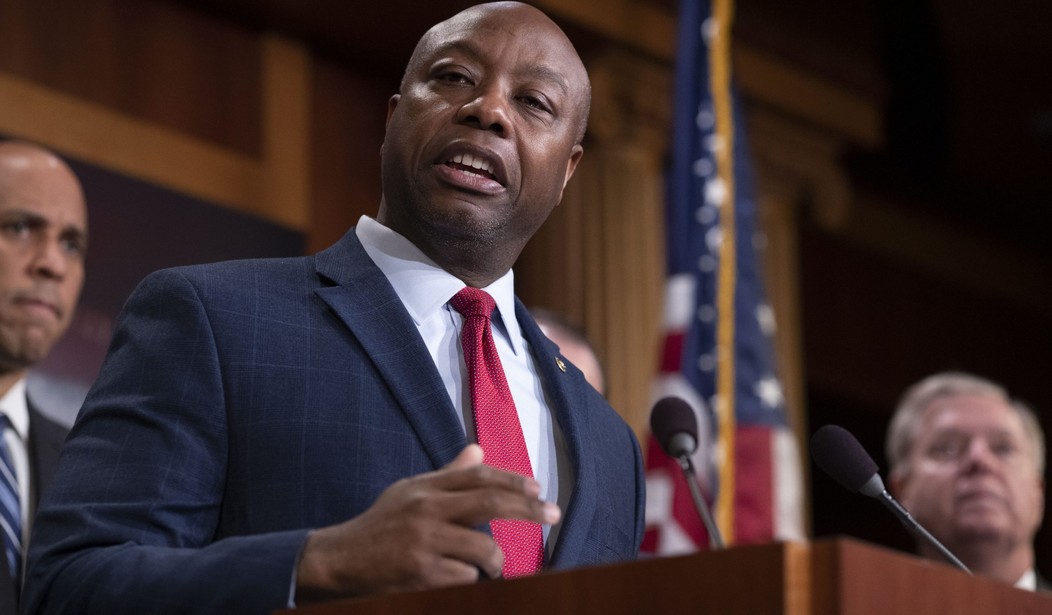WASHINGTON — Sen. Tim Scott (R-S.C.) stressed that he wants not just criminal-justice reform but “community justice reform” after the Senate didn’t include in the First Step Act an amendment that would have required states receiving federal law enforcement funding to report details about officer-involved shootings.
Scott named the amendment after Walter Scott, an unarmed black motorist who fled from a traffic stop on April 4, 2015, in North Charleston, S.C., and was shot in the back by Officer Michael Slager. A bystander captured the killing on video, and Slager was sentenced to 20 years in prison on federal civil rights violations in December 2017.
North Charleston is the hometown of Sen. Scott, who is no relation to Walter Scott.
“This week’s criminal justice reform package provides us with an amazing opportunity to ensure the scales of justice are weighted equally for all Americans,” Scott said Tuesday. “By giving us a deeper understanding of situations that lead to officer-related shootings, I believe the Walter Scott Notification Act can keep both our law enforcement officers and our communities safer.”
Scott’s bill would have required states to record a number of data points on officer-involved shootings, including the race of those involved.
States not in compliance would have seen a 10 percent cut in federal funds.
At a press conference today alongside fellow proponents of the overall criminal-justice reform package, which seemed perpetually dormant before coming up for a vote in the 11th hour, Scott quipped that he has “spent four or five years on this issue, so I’m the newbie at the table.”
“But I come to this issue from a very different perspective… I started the conversation because I wanted to make sure that the communities that the return citizen is going to is going to be a safer place. So for me, this is not simply a criminal justice reform bill. This is a community justice reform bill,” the senator said. “As a kid growing up in a single-parent household mired in poverty I recall the day that I came home from school when my house was broken into. And so from my perspective what I hope to accomplish with this legislation is to curb the number of folks to go home and commit a crime and come back to jail. That makes our communities safer.”
Scott added that “the secret recipe of reducing recidivism… falls into three basic tranches.”
“One is around workforce development. Having the skills necessary to be employable when you go home. Number two is recognizing and dealing with the emotional and mental issues and conditions that are pervasive throughout our criminal justice system,” he said. “And the final piece is the importance of education.”
“I’ve spent some time visiting state prisons in South Carolina and the level of functional illiteracy in jail must be around 60 percent to 70 percent. If we can focus on the benefits and the advantages for the community this bill will have been worth it.”
The Senate passed by voice vote today a bill introduced in June by Scott along with Sens. Kamala Harris (D-Calif.) and Cory Booker (D-N.J.) to make lynching a federal crime.
“This is a historic piece of legislation that would criminalize lynching, attempts to lynch and conspiracy to lynch for the first time in America’s history,” Harris said on the Senate floor. “Lynching is part of the dark and despicable aspect of our country’s history that followed slavery and many other outrages in our country.”









Join the conversation as a VIP Member